Workshop - Observe, survey, map and draw relations with nature(s) in Ìbàdàn Campus
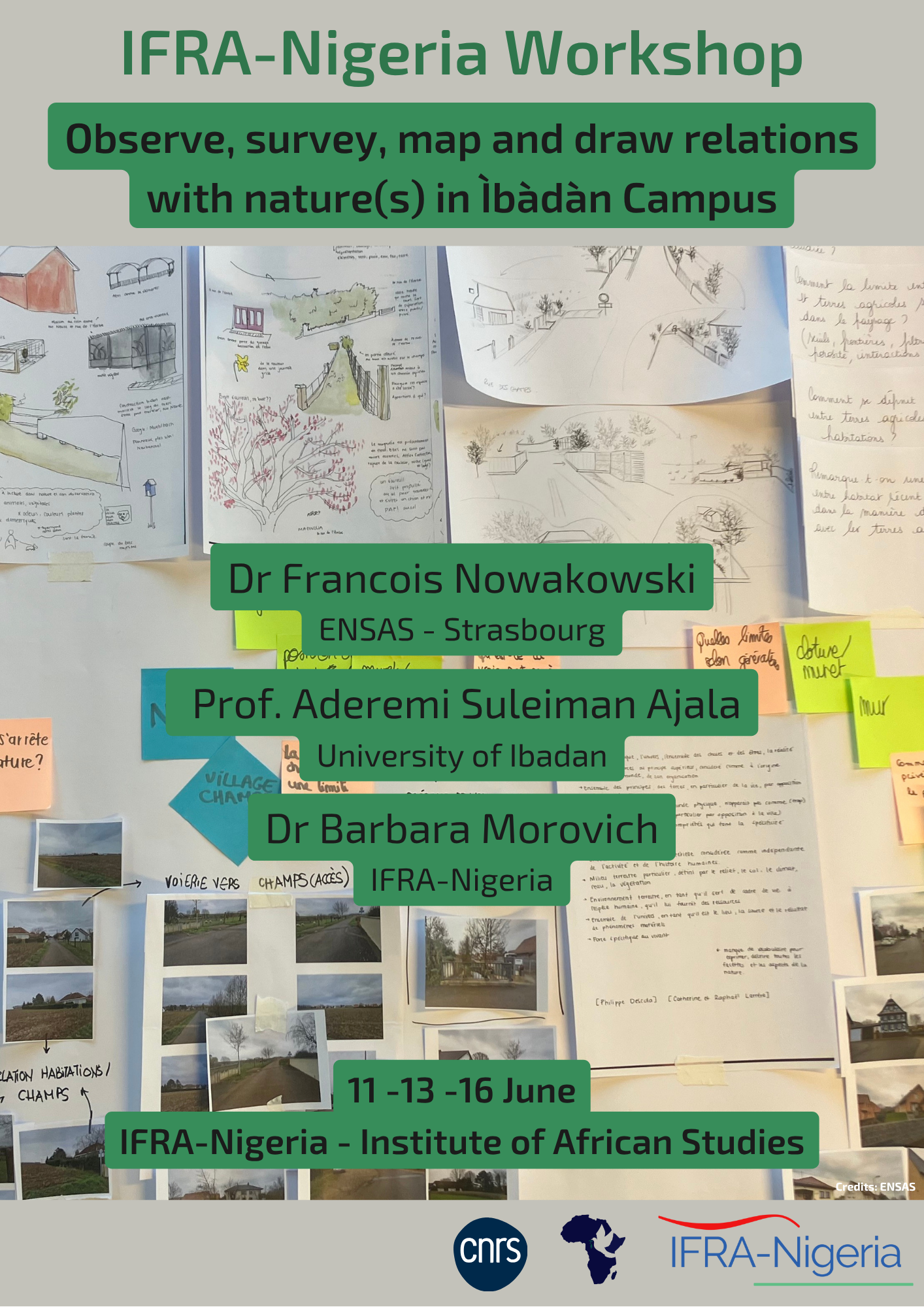 On 11, 13 and 16 June, IFRA-Nigeria organized a practical research workshop titled “Observe, survey, map and draw relations with nature(s) in Ibadan Campus.” Its goal: introduce 20 master’s students to original methods of doing research, in particular anthropology and urbanism, and, most of all, to give them the opportunity to practice them within the campus.
On 11, 13 and 16 June, IFRA-Nigeria organized a practical research workshop titled “Observe, survey, map and draw relations with nature(s) in Ibadan Campus.” Its goal: introduce 20 master’s students to original methods of doing research, in particular anthropology and urbanism, and, most of all, to give them the opportunity to practice them within the campus.
Three researchers hosted this workshop: Dr François Nowakowski (National School of Architecture Strasbourg, France), Professor Aderemi Suleiman Ajala (University of Ibadan) and Dr Barbara Morovich (director of IFRA-Nigeria).
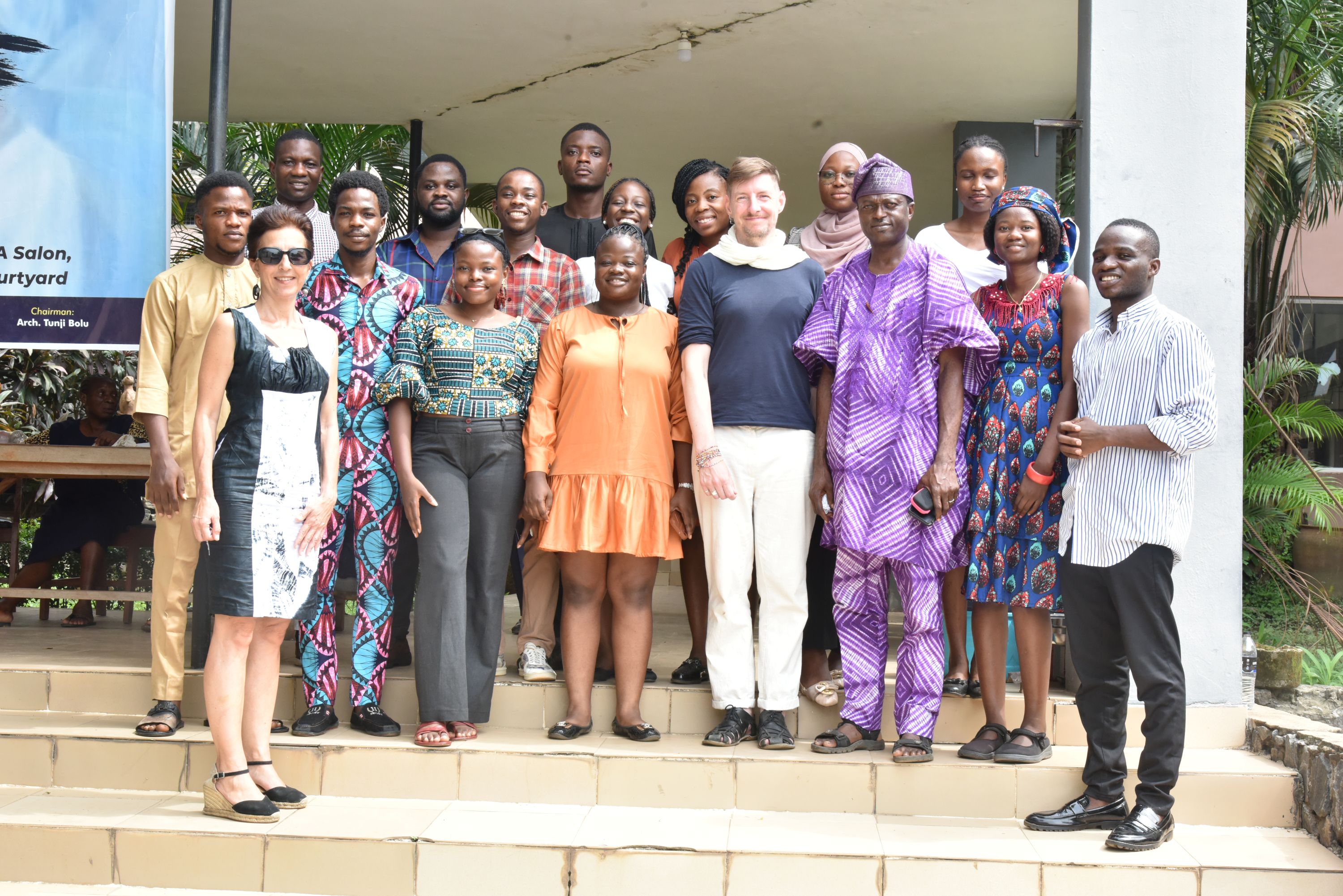
The first day opened with the respective presentations of the coordinators’ backgrounds and their experiences with those alternative research methodologies.
First, Dr Barbara Morovich shared the work of “shared anthropology” she conducted in Strasbourg: collaborating with an artist and an architect around a square being renovated, they organized an exhibition with the population, interrogating the people’s negotiation with this reconstruction and the position of the anthropologist in this dynamic. She invited the participants to think about the consequences of their own presence in the field work, and the responsibility of the anthropologist towards the group he or she studies. Key in “shared anthropology” is making the results of the research accessible to the studied group.
She reflected on her own journey, and her decade as both a researcher and a community activist in some of Strasbourg’s most marginalized neighborhoods. Resulting from this double position, she created, for example, graphic life courses. This is a visual method making visible and comprehensible the life stages of people in those, challenging their perceptions as being stagnant. She also made a documentary film, which forced her to question how to film people who are rarely represented in the media.
Next, during her time in Argentina she organized "interdisciplinary workshops" in a disadvantaged area of Buenos Aires. Her goal was to find a way to apply anthropological methods to short term action, to gain acceptance in a very short time and to determine how to make the choice of what action and actors to make visible. To conclude, she emphasized the necessity to look at yourself as a researcher and always question your positionality to avoid being prejudiced.
Next, Professor Aderemi presented his background in interdisciplinary studies, related to social systems which are his principal research interest. He emphasized the need for ethnographic innovation; indeed, the traditional notion of ethnography can no longer be sustained. It must adapt to the changing research contexts, the new technologies and existing methodologies. The researcher must remove the existing burdens, express reflexivity and creativity in his ethnographic practice.
He noted that it is very important not to impose your judgment on the population studied, while remembering that they are at the heart of the research, and creativity is key in finding this balance. Next, he presented how it can also make research more efficient in terms of time and money:
- Cartographic mapping: helps you conceptualize the space you work in, which is essential to understand as the environment also determines the culture of a place.
- Multi-modal analysis: researchers should not only look at text analysis but also image, audio and more to properly immerse themselves in the culture of their chosen research subject.
- Co-creation: it is essential to establish good relations with the people, identify the ley participants and support them with materials needed.
He concluded that besides his own advice, the students should look to devise their own, topic-appropriate, research methods.
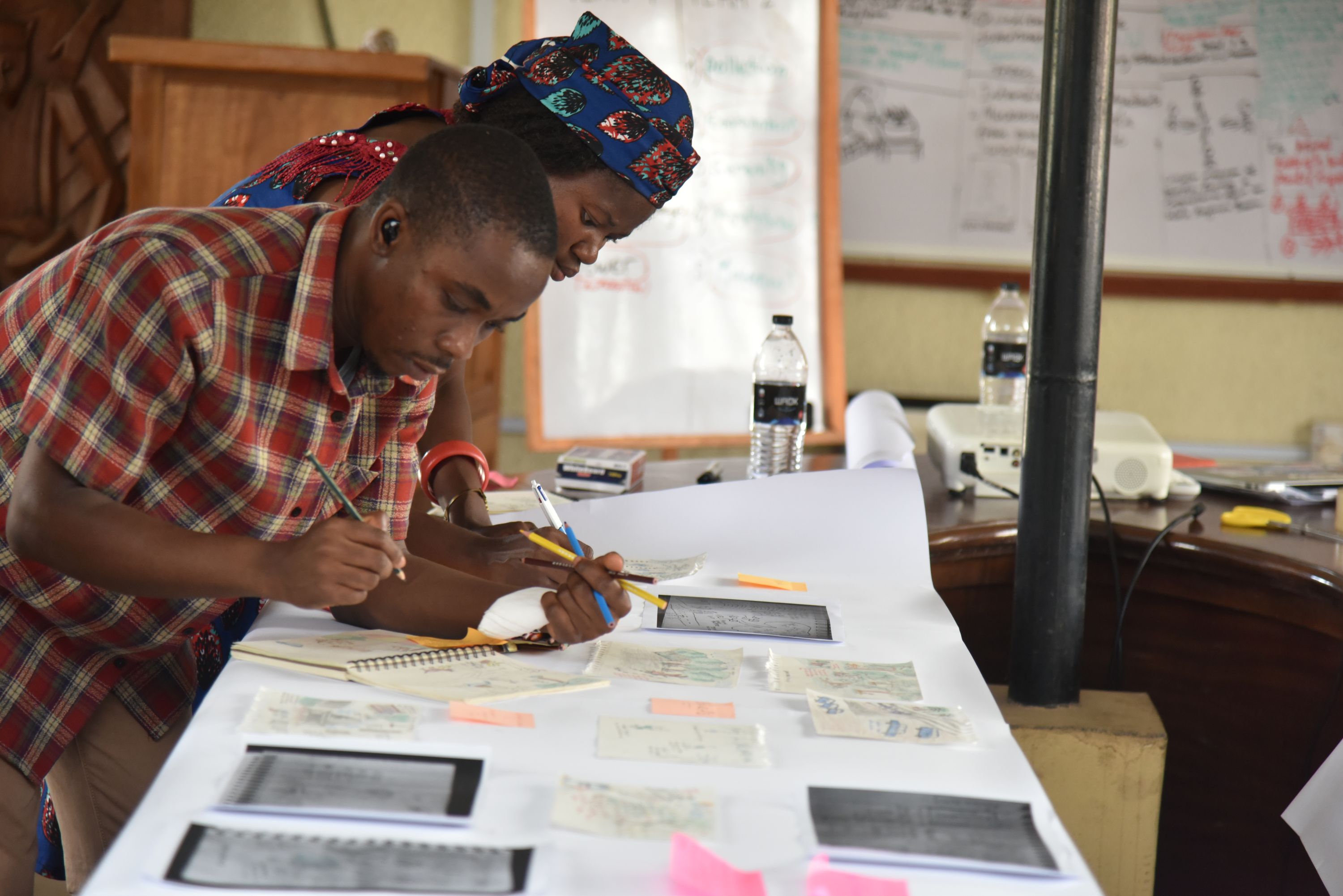
Finally, Dr Nowakowski presented his research and teaching on urban transformation and alternatives to neoliberalism in urbanism. His main goals and interrogations are how to improve the lives of inhabitants, and how to develop greener cities.
He introduced the objectives of the workshop:
- Observe and survey different forms of relationships between people and nature in the University.
- Questioning what we mean by nature in this context.
- Experiment different forms of survey protocols: classical ones like interviews, and new ones such as drawing.
- Propose a sensitive and reflective vision of the place of nature, describe their own feelings or the ones of the people studied.
- Create interactions between different disciplines.
He introduced several of those methods, presenting for example the difference between a regular map, based on geographical reality, and the sensitive map, based on the memory of the place. It’s also possible to survey, and draw, the attitudes of people in the environment, show their movements and the physical space itself, how all those components connect to each other. With the use of carbon copies, you can even decompose your drawing in different levels.
After breakfast and the presentation of all the participants, the students formed groups of two or three, from different disciplines, and went onto the field to practice some of the methods given by the three speakers. All reconvened at the end of the day to share their findings, and exchange on their first impressions of those innovative research methods.
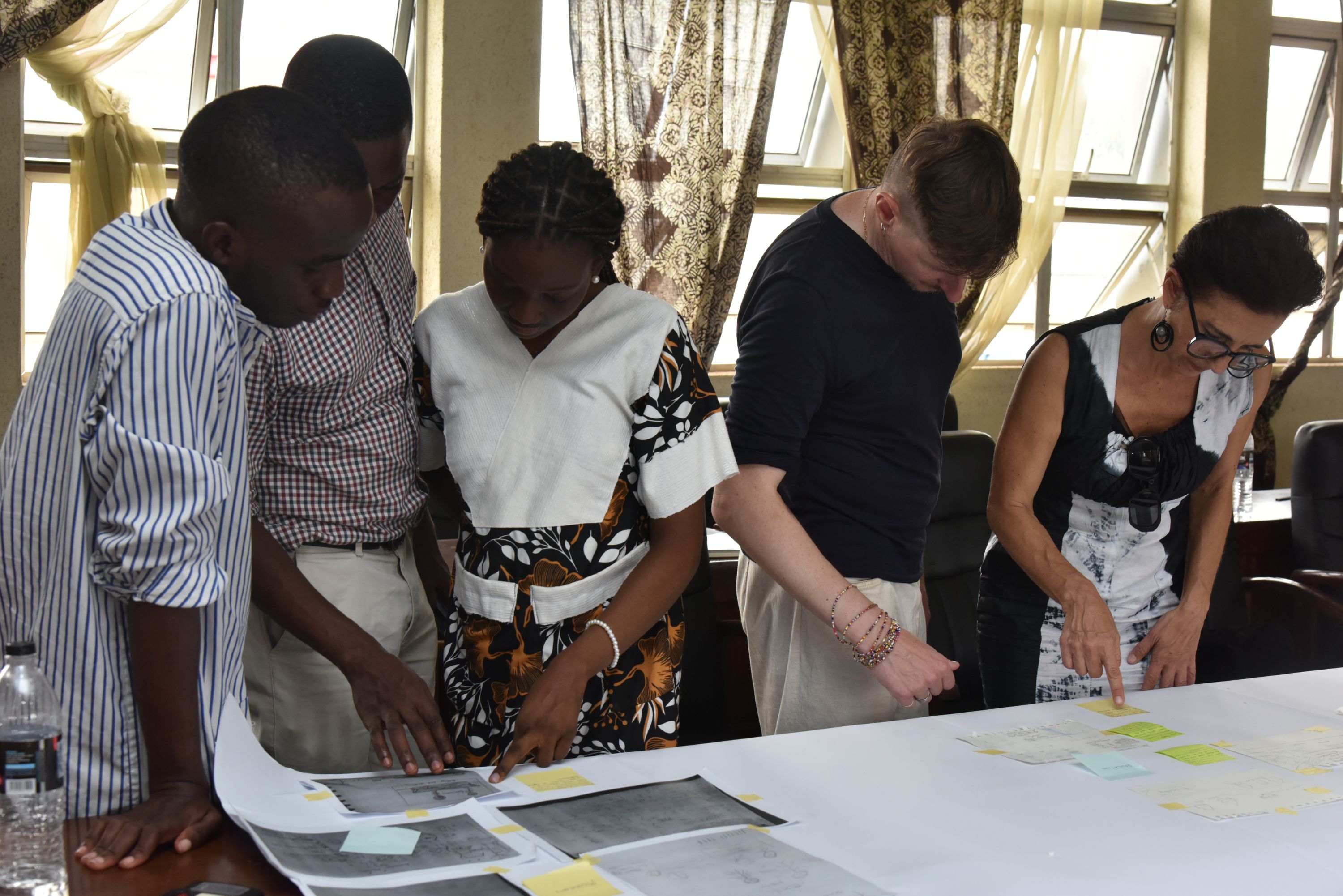
The second day started with a keynote speech by Professor Aderemi. He proposed to study several lenses through which to see the natural: scientific, religious, social, symbolic, metaphorical and relational. In this way, he highlighted the diversity of perspectives the participants could use to study a similar subject.
He also invited them to question who owns the space, if there is competition between people, or between humans and nature. He also noted that it is important to determine the type of anthropological data we generate by doing that.
Finally, he offered a few possible topics to explore:
- Nature and the economic purpose of space in UI.
- Nature and macroeconomic activities on campus.
- Nature and the role religion may play in its protection.
- Space and politics.
- Nature creating a competition over space.
- Artistic representations of space.
After the keynote and comments by Dr Morovich and Dr Nowakowski, the groups presented their own research interests, and discussed with the facilitators the methodology appropriate for their objectives, before heading back to the campus.
Once again, they gathered in the afternoon to present their findings and their experience of the workshop, as well as preparing the final day of fieldwork.
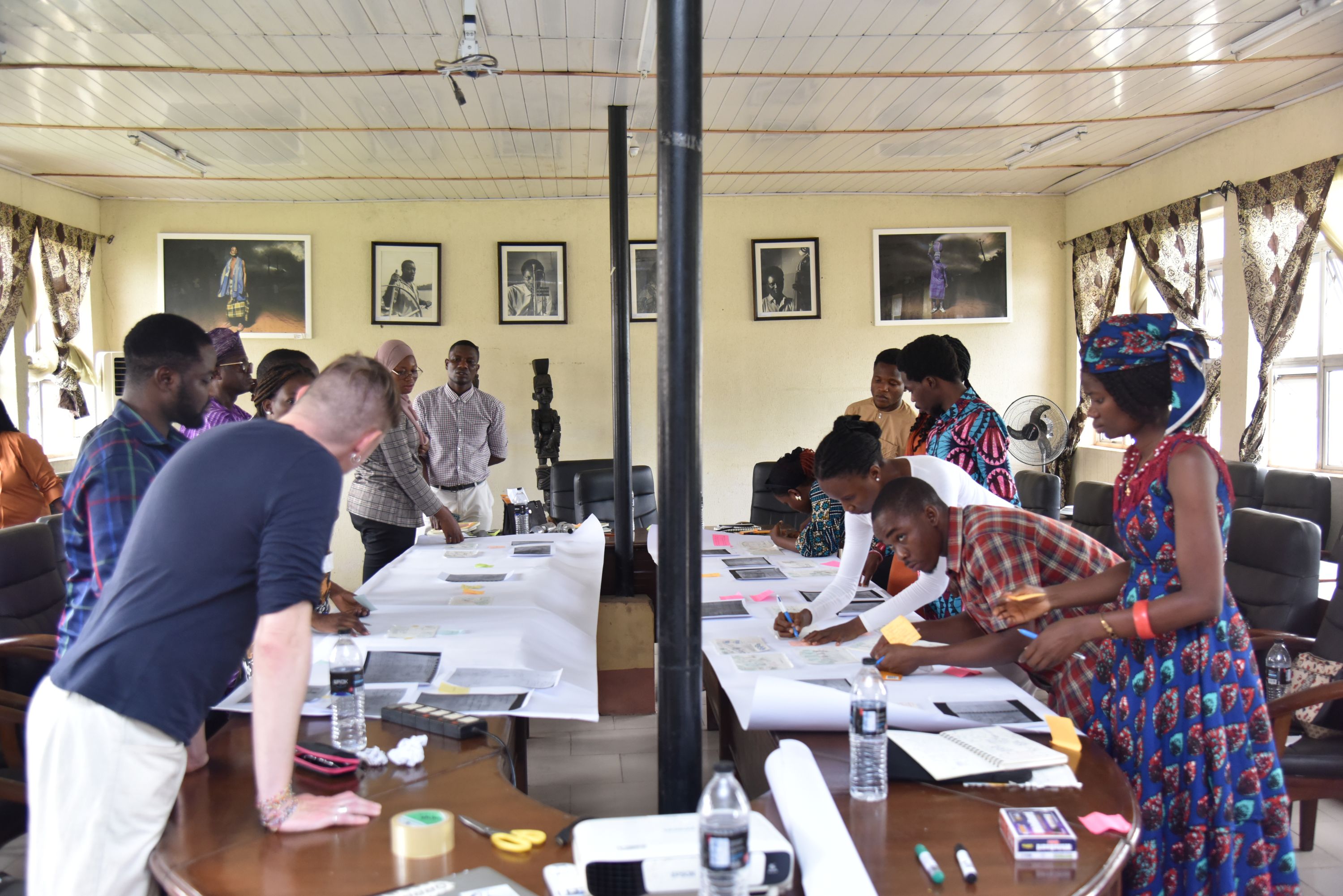
The morning of the third day was entirely dedicated to the fieldwork, though this time the different groups had to meet with the coordinators at set time and locations, in order to present what they had done so far, express interrogations and receive advice on their exercise, before the final hours on campus.
Meeting up for lunch, the participants and coordinators gathered for a concluding roundtable, to discuss their final findings, their impression of the workshop, thoughts on alternative research methods and what they learnt during the last three days.
They also selected some of their notes, sketches and maps which were selected in an overall presentation of their research, collaborative and innovative, like the methods they practiced during the workshop. The finished piece was presented in the hall of the Institute of African Studies, as the participants each had the chance to present their part and their final impressions of the workshop, before receiving their completion certificate.
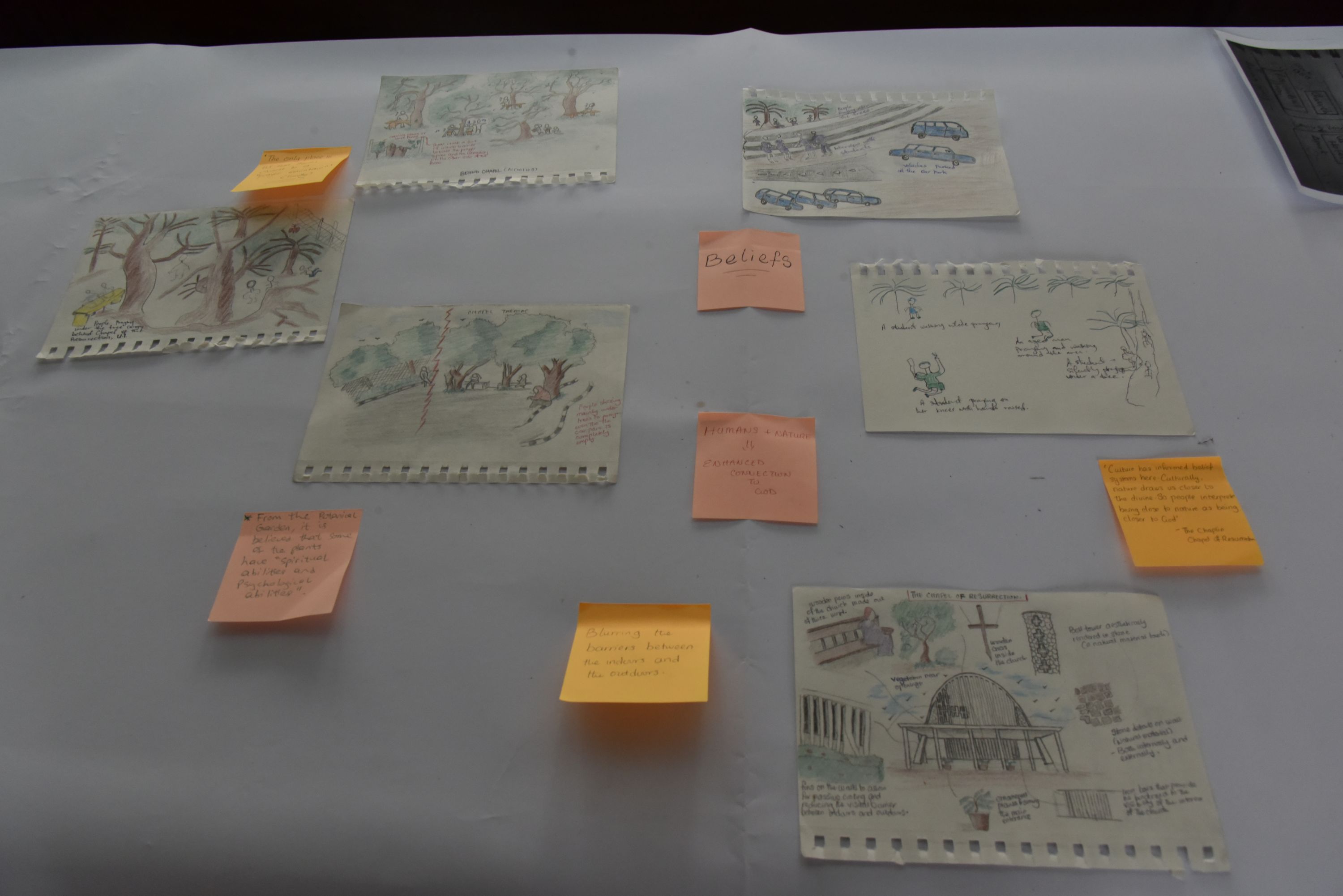
Tags: Ibadan, Nature, Anthropology

Social Media
Mailing List